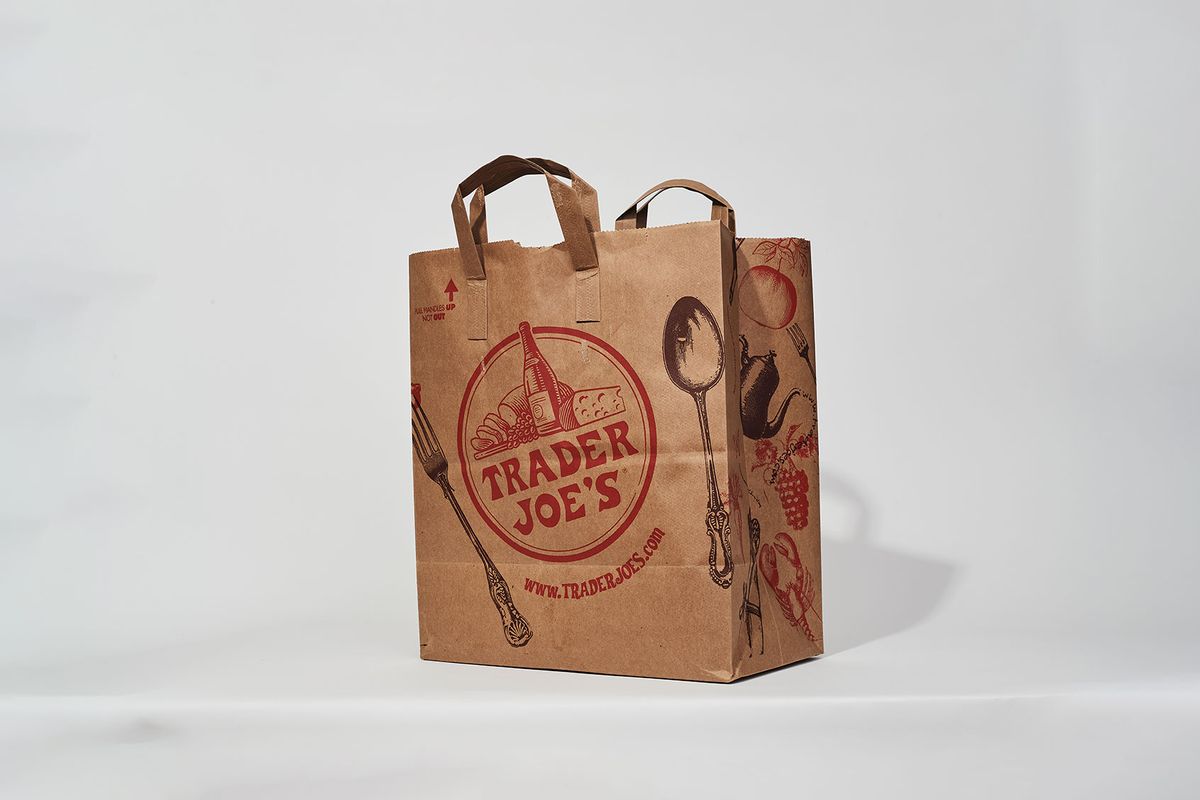An Amazon team that was working on the multinational corporation’s new private-label food brand reportedly pressured a former Trader Joe’s employee to expose confidential store data that could help Amazon compete with the grocery store chain.
Per a Wall Street Journal report published Saturday, Amazon’s Wickedly Prime, launched in 2016, sought to compete with Trader Joe’s by replicating the top 200 items sold at the fan-favorite store. Wickedly Prime specifically targets “foodies,” offering Amazon Prime members “a line of seriously tasty food and beverages,” the brand noted in its Instagram bio. A few of its products include coconut toffee roasted cashews, organic seaweed snacks and garlic mustard aioli.
Amazon hired a former senior manager from Trader Joe’s snack foods division, who allegedly was told only after being recruited that her job role was to help create a product line for Wickedly Prime. Data concerning Trader Joe’s store products is not readily accessible, according to the Journal. So in order to acquire that information, an Amazon manager repeatedly tormented the ex-Trader Joe’s employee — who remains unnamed in the report — for six months, demanding she send over store data along with emails and documents she received while working with the grocer. The employee eventually succumbed to the pressure and handed over the data along with all the requested documents to the manager.
The Amazon manager also reportedly hounded the ex-Trader Joe’s employee for data on the margins of each product. When the employee refused, the manager yelled at her, saying, “You have to give us the data!” according to a source who witnessed the interaction and recalled it to the Journal.
The manager and other employees on the team distributed the data they had gathered and brainstormed ways they could use it to their advantage, per the Journal. However, their efforts were cut short after another Amazon employee reported the misuse of Trader Joe’s data to Amazon’s legal department.
“We do not condone the misuse of proprietary confidential information, and thoroughly investigate any reports of employees doing so and take action, which may include termination,” an Amazon spokesperson told Business Insider.
The employees who accessed and used the data were fired, the Journal reported.
Amazon’s recent tussle with Trader Joe’s underscores the severe lengths the corporation will take to compete with major grocery companies. In 2015, Amazon approached several private-label food companies, including TreeHouse Foods, in anticipation of launching its own line of food and household products. The corporation also filed for trademark protection in more than 20 product categories, including milk, coffee, soup, pasta, and water, as well as household products such as razors and cleaners.
Amazon also acquired Whole Foods for $13.7 billion in 2017 and immediately began cutting costs. Enticed by the new low prices, customers from other grocery chains quickly flocked to Whole Foods, according to a report by alternative data intelligence firm Thasos Group, which analyzed mobile phone location data. Specifically, almost 10% of regular Trader Joe’s customers defected to Whole Foods the first week after the Amazon acquisition.
In 2020, Amazon opened its first Amazon Fresh grocery store to the public.
Want more great food writing and recipes? Subscribe to Salon Food's newsletter, The Bite.
As for Trader Joe’s, the beloved grocery chain was accused of ripping off smaller food brands, according to a recent investigation from food publication Taste. Such brands also asserted the chain approached them under the guise of doing a deal, only to abandon them, copy their products and claim said products as their own.
Earlier this year, the National Labor Relations Board (NLRB) — an independent federal agency tasked with protecting the rights of private sector employees — accused Trader Joe’s of “illegally retaliating against workers, firing a union supporter and spreading false information in an effort to chill an organizing campaign,” HuffPost reported. In response, the grocer’s legal team mounted a sweeping defense, arguing that the agency is “unconstitutional.”
Trader Joe’s joins Starbucks as well as Elon Musk’s SpaceX and Amazon, which have all filed legal papers in hopes of shutting down the NLRB for good.



Shares